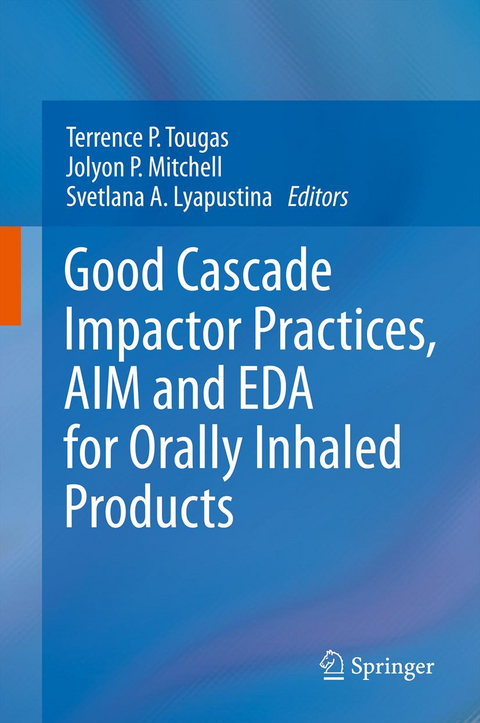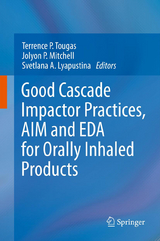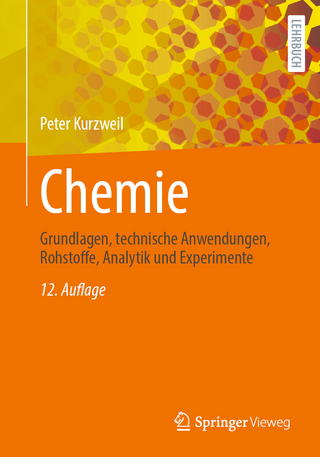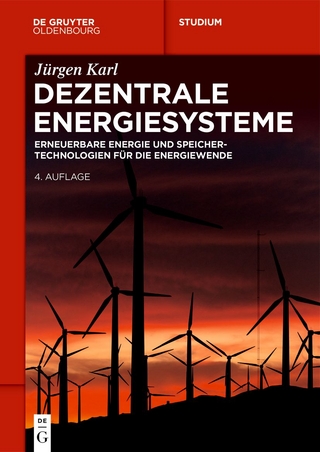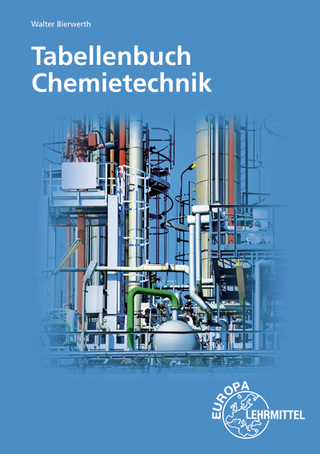Good Cascade Impactor Practices, AIM and EDA for Orally Inhaled Products
Springer-Verlag New York Inc.
978-1-4614-6295-8 (ISBN)
The purpose of this publication is to introduce a new, simpler and more effective way in which to interpret pharmaceutical aerosol particle size data from orally inhaled products (OIPs). Currently, the compendial and regulatory requirements dictate the need for measurements by full resolution multi-stage cascade impactor (CI), a process that is demanding for the operator, time consuming, prone to experimental error, and challenging for method transfers from one laboratory to another. Furthermore, we shall show that the current practice of reducing information from mass-weighted aerodynamic particle size distribution (APSD) measurements through the use of CI stage groupings is not the most effective decision-making tool for OIP quality control (QC) in comparison with newly introduced, mutually-independent efficient data analysis (EDA) metrics that can be derived either from full resolution or abbreviated impactor measurements (AIM).
Terrence P. Tougas, Ph.D. Terrence Tougas, Ph.D. is a Highly Distinguished Research Fellow in Analytical Development at Boehringer Ingelheim Pharmaceuticals, Ridgefield, CT where he has over 20 years of experience and currently heads the Stability, Submission Documents and Information Systems Group. He contributed to chemistry, manufacturing and controls sections of several New Drug Applications, including for pulmonary (metered dose inhalers, inhalation solutions and nasal sprays) and antiviral products. Dr. Tougas is a member and past chair of the International Pharmaceutical Aerosol Consortium on Regulation and Science (IPAC-RS) Board of Directors, and has been leader or member of several IPAC-RS working groups. Dr. Tougas served on the Steering Committee and chaired the Drug Product Technical Committee of the Product Quality Research Institute (PQRI). More recently, he helped form the International Consortium on Innovation and Quality in Pharmaceutical Development (IQ), served as the first chair of its Board of Directors and is a member of the IQ Statistics Leadership Group. Dr. Tougas authored numerous publications related to the CMC aspects of drug development, analytical chemistry and quality control statistics. He contributed chapters to books on chromatography and leachables/extractables testing of inhalation products. His background is in analytical chemistry; he holds a Ph.D in chemistry from the University of Massachusetts, Amherst. Jolyon P. Mitchell, Ph.D. Jolyon Mitchell, Ph.D. is Scientific Director at Trudell Medical International, London, Canada. He is involved in several industry-wide organizations involved with inhaled medical aerosol delivery, in particular the European Pharmaceutical Aerosol Group (EPAG) as well as serving as a Scientific Adviser to IPAC-RS. He played major parts in the development of an international standard (ISO 20072:2009) covering the design verification of portable inhalers, as well as a Canadian Standard for Spacers and Holding Chambers (CAN/CSA Z264.1-02:2002). He is currently a Canadian delegate to ISO/TC121/SC2, involved with the ongoing development of a standard specifically for nebulizing systems (ISO 27427). In 2010, he was recently appointed to the Expert Committee: General Chapters – Dosage Forms of the United States Phamacopeial Convention for the 2010-2015 term, where he serves as vice chair of the Aerosols dosage form sub-committee. His background is in physical chemistry. He is a Fellow of the UK Royal Society of Chemistry, a Chartered Scientist, a founder member of the UK-Irish Aerosol Society and a member of the Gesellschaft für Aerosolforschung, American Association for Aerosol Research, American Association of Pharmaceutical Scientists and the International Society for Aerosols in Medicine. He is on the Editorial Advisory Board of Journal of Aerosol Medicine. He is also an adjunct professor at the University of Western Ontario. Svetlana A. Lyapustina, Ph.D. Svetlana Lyapustina, Ph.D. is a Senior Science Advisor in the Pharmaceutical Practice Group of the Washington, D.C. office of Drinker Biddle & Reath LLP. As a member of that multi-disciplinary team, Dr. Lyapustina has served as Science Advisor and Secretariat for several industry consortia, including the International Pharmaceutical Aerosol Consortium on Regulation and Science (IPAC-RS), the International Consortium for Innovation and Quality in Pharmaceutical Development (IQ), an International Pharmaceutical Supply Chain Consortium Rx-360, Alliance for Biosecurity, Nanomedicines Alliance, and Allotrope Foundation. She was an active member of the Product Quality Research Institute (PQRI), of a Project Team of the United States Pharmacopeia, and a US National Expert in the International Organization for Standardization (ISO). Dr. Lyapustina counsels clients on a wide range of topics related to drug and device product development, pharmaceutical manufacturing, regulatory compliance, quality control, bioequivalence requirements, intellectual property and other issues. Her educational background is in physical chemistry and biophysics. She has authored or co-authored numerous articles on regulatory and scientific topics in drug product development from the US, European and international perspectives, as well as articles and presentations about the process and value of cross-industry collaborations.
Introduction.- Current Approaches To APSD Measurement of OIPs Based on Inertial Impaction.- Physical Causes of APSD Changes in Aerosols From OIPs and their Impact on Cascade Impactor Measurements.- Good Cascade Impactor Practices.- The AIM and EDA Concepts: Why they are Needed.- Product Lifecycle Approach to Cascade Impaction Measurements.- Theoretical Basis for the EDA Concept.- Performance Characterization of EDA and its Potential to Improve Decision Making in Product Batch Release.- Verification of the EDA Concept through an Assessment of Theoretical Failure Modes, Failure Mode Analysis and Case Studies with Real Data.- Validating AIM-Based Instrumentation and Associated Measurement Techniques.- The Regulatory and Compendial Acceptance Pathways for AIM and EDA.- Applying the AIM Concept in Support of Developing Improved In Vitro-In Vivo Relationships for OIPs.- Future Directions for the AIM and EDA Concepts.- Conclusions.
| Zusatzinfo | XII, 442 p. |
|---|---|
| Verlagsort | New York, NY |
| Sprache | englisch |
| Maße | 155 x 235 mm |
| Themenwelt | Medizin / Pharmazie ► Pharmazie |
| Naturwissenschaften ► Chemie ► Technische Chemie | |
| Technik | |
| Schlagworte | AIM • Inhale • Lyapustina • Oral • Product |
| ISBN-10 | 1-4614-6295-9 / 1461462959 |
| ISBN-13 | 978-1-4614-6295-8 / 9781461462958 |
| Zustand | Neuware |
| Haben Sie eine Frage zum Produkt? |
aus dem Bereich
